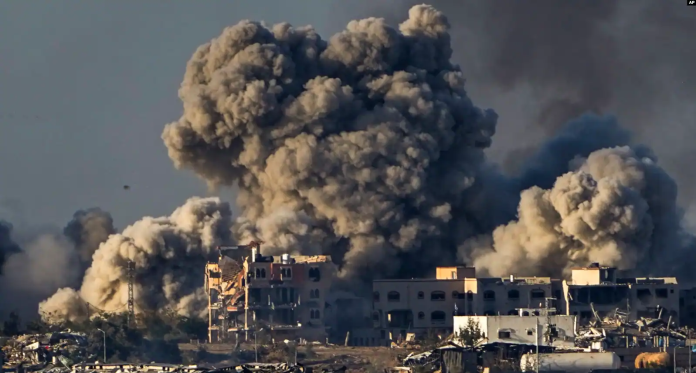This week, the International Court of Justice (ICJ) will hear a case brought by South Africa. The country accuses Israel of genocide during the Gaza war and demands a cessation of hostilities.
The ICJ’s 15-judge panel, expanded by an additional judge from each side in Israel’s case, deals with border disputes and violations of UN treaty obligations.
Both South Africa and Israel are signatories to the 1948 Genocide Convention, which gives the ICJ jurisdiction to rule on disputes over the treaty. It is noted that the Palestinians have no official role in the proceedings as they “are not a member state of the United Nations.”
All signatories to the Genocide Convention are obliged to prevent and punish genocide. The treaty defines genocide as “acts committed with intent to destroy, in whole or in part, a national, ethnical, racial or religious group.”
South Africa states that, by killing Palestinians in the Gaza Strip, inflicting serious moral and physical injury on them and creating conditions “calculated to bring about their physical destruction,” Israel is committing genocide against them.
It lists Israel’s inability to provide essential food, water, medicine, fuel, shelter and other humanitarian assistance to Gaza. South Africa also points to the prolonged bombing campaign, killing more than 23,000 people, according to the Gaza Health Ministry.
“The acts are all attributable to Israel, which has failed to prevent genocide and is committing genocide in manifest violation of the Genocide Convention.”
Israeli President Isaac Herzog called the ICJ case “atrocious and preposterous.” Israel stated that it was making every effort to avoid civilian casualties in the Gaza Strip.
We will be there at the International Court of Justice and will present proudly our case of using self-defence under our most inherent right under international humanitarian law.
The hearings will take place on January 11 and 12. South Africa and Israel will each have two hours on different days to present their arguments for or against the extraordinary measures, without testimony or cross-examination.
However, the court will not make a final ruling on South Africa’s genocide charges until a hearing on the merits of the case, which is likely to be several years away. This week’s hearing only concerns possible extraordinary measures.
South Africa has asked the court to order Israel to suspend military action in Gaza, cease any acts of genocide or take reasonable measures to prevent genocide, as well as to report regularly to the International Court of Justice on such measures.
The judgements of the International Court of Justice were final and not subject to appeal, but it had no means of enforcing them. However, a ruling against Israel could harm the country’s international reputation and set a legal precedent.
If the court finds that it has prima facie jurisdiction, the case will be referred to the International Criminal Court (ICC) in The Hague, even if the judges decide against extraordinary measures.
Several years elapse between the initial lawsuit and the actual trial on the merits.
